History & Heritage
A Peek Inside Glodok’s Traditional Chinese Medicine Shops
Despite its image as a thriving trading centre for affordable electronic goods and authentic Chinese cuisine, Glodok has long attracted visitors fascinated by its Chinese medicine shops situated along Jl. Pancoran. People come in search of herbal remedies traditionally prepared by Chinese healers that are believed to offer effective alternative treatments for various ailments. Recognised

Sweet Betawi Bites
The northern Javanese coastline that Jakarta calls home was once rich with coconut trees, which has become reflected in traditional Betawi cuisine. For centuries, the Betawi people used what was abundant in their surroundings for nourishment, finding many ways to use but a handful of ingredients in creative and resourceful ways. With simple ingredients like

Kembang Kelapa: Betawi’s Token of Prosperity
Literally translating to “coconut flower,” kembang kelapa is a classic Betawi decorative element, a symbol of blessings, prosperity, and respect for tradition. Jakarta residents might frequently encounter this decorative item without knowing its name. Brightly coloured and crafted from paper or other lightweight materials, it is shaped to resemble the blossoming of a coconut flower.
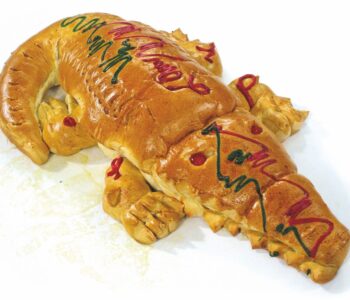
Roti Buaya: A Symbol of Loyalty
In the traditional Betawi wedding ceremony, it’s mandatory for the prospective groom to bring roti buaya (crocodile-shaped breads) to the prospective bride as a symbol of everlasting love and marital fidelity. The existence of this symbol was influenced by Batavia’s topography and European culture. The Europeans who settled in Batavia (Jakarta) undoubtedly influenced the local
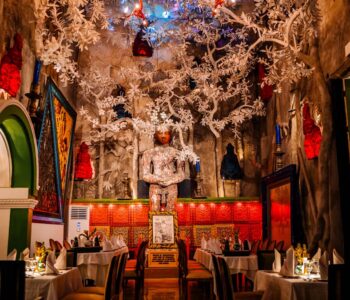
Enter the House of Tugu, Old Town Jakarta
Transcending the very notion of a hotel, House of Tugu, Old Town Jakarta invites guests to explore an almost other-wordly realm, defined by timeless artefacts, art pieces and antiques rooted in Jakarta’s own rich history. Standing across the banks of Kali Besar, in the true historical heart of the city, House of Tugu, Old Town

The History Beneath Our Feet
The intriguing historical discoveries uncovered during MRT Jakarta construction Phase 2A. Remnants of Jakarta’s colonial history, from when it was known as Batavia, have been hiding beneath the surface of the megacity we know today. Dutch infrastructure and historic artefacts from 300 years ago have been rediscovered during the excavation process for the MRT Jakarta

Museum Nasional Indonesia Rises from the Ashes
After a year-long closure, Museum Nasional Indonesia (MNI) was officially reopened on 15 October 2024. Having undergone substantial renovations, the museum reopens with modern appeal, complete with fresh new archives and displays, as well as interactive and educational programmes promising an engaging experience for visitors. On 16 September 2023 at 7:58 pm, a fire caused
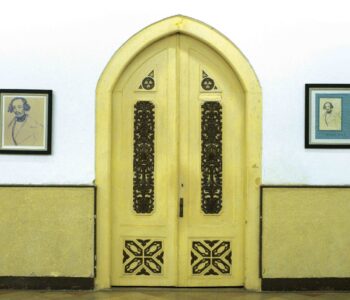
The Charm of Cikini, Where Jakarta’s Past and Present Co-Exist
Originally built as part of Weltevreden, an elite residential area on the outskirts of Batavia, what we know now as Cikini is certainly one of Jakarta’s important historical areas. Many stories are found here, from the birth of Indonesia’s first zoo to the attempted assassination of President Soekarno. Despite experiencing rapid development, many heritage buildings

Tanjidor: The Betawi Folk Orchestra
Tanjidor is a traditional Betawi musical orchestra largely composed of brass and wind instruments and drums. This modest ensemble was played by the slaves during the Dutch colonial era. From its name, the most common theory says that tanjidor derived from the Portuguese words, tanger (to play music) and tangedor (playing music outdoors). In Portugal, the
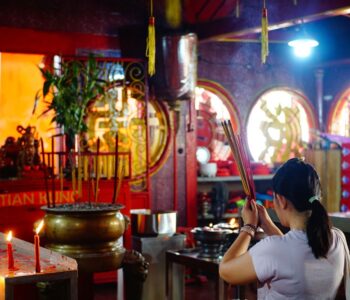
Glodok, Jakarta’s Historical Chinatown
The Glodok Pancoran area in West Jakarta is a window into the Chinese culture beyond its homeland. Against a vibrant backdrop of cultural diversity, this bustling area offers a paradise of luscious food, heritage sites, colourful temples filled with incense, encounters with intriguing personalities, and enticing bargain hunts. Delving into the old buildings reveals the

Gigi Balang: A Classic Betawi Ornament
Gigi balang is a traditional Betawi pattern often used in vernacular architecture. Beyond simple decoration, this ornamental pattern is symbolic of a Betawi philosophy on life. The term gigi balang comes from gigi belalang, or ‘grasshopper teeth’. This comes from the idea that grasshoppers, on their pursuit to bite their way through wood, can only do
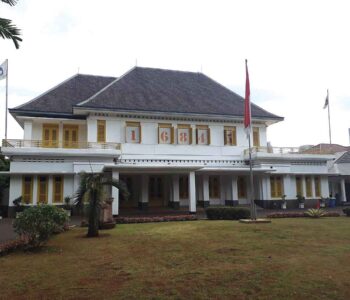
Independence Day Sites and Monuments in Jakarta
It was a long journey for Indonesia to declare its independence from colonial rule on 17 August 1945, when the Proclamation of Independence was read by Soekarno and Mohammad Hatta on behalf of the Indonesian people. That moment was a clear mark that the nation of Indonesia was established and indeed sovereign. Commemorating this historic
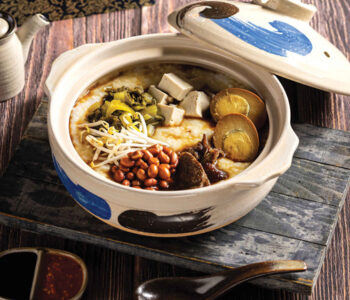
Bubur Ase: A Special Betawi Porridge
At the beginning of the 20th century, bubur ase was a popular food among Batavia residences and was a mainstay for Betawi society. A bowl of this special rice porridge, full of nutritious condiments, warmed stomachs and provided sustenance for the day. Other than being a favourite breakfast meal, the dish is an example of

